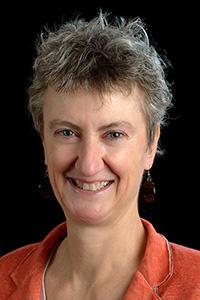
Professor Liz Harry, Director of the ithree institute
After a meeting held on Wednesday 21 September 2016, all 193 UN member states pledged to work together to tackle the issue of global antibiotic resistance. This is only the fourth time the UN has had such a high level meeting on infectious disease, highlighting the seriousness of the problem. Professor Liz Harry, Director of the ithree Institute (Infection, Immunity and Innovation), responded to the meeting below. For further expert comments on the issue, visit the Australian Science Media Centre.
Response from Professor Liz Harry
There are a range of diseases, not just infectious diseases, for which antibiotics are used routinely; in patients who are immunosuppressed - who have had chemotherapy or organ transplants - or after most routine operations. It doesn’t stop with humans - antibiotics are widely used in the agricultural sector.
Antimicrobial resistance (AMR) is an incredibly serious issue and the solution isn’t simple. The UN declaration provides a much-needed standpoint from which all countries can coordinate development of action plans. Last year in Australia, the Commission on Safety and Quality in Health Care released its first national antimicrobial resistance strategy. It has since developed national surveillance surveys of AMR and antibiotic use in human health, animal health and agricultural settings. This is an important first step in getting a handle on the scale and severity of the issue.
Almost all the microbes we coexist with are essential for good health and they sustain our environment. At the i3 institute we focus on understanding how microbial communities harmoniously live and thrive; and imbalance leads to infectious disease. But it is not just about developing new antibiotics. We can now use technology to determine what underpins a stable microbial ecosystem and find other tools and mechanisms to moderate and maintain this balance.
In addition to the usual players, from governments to industry and health professionals, the community has the right and the power to bring about change. This requires clear and consistent messaging of what AMR is and the delayed consequences of choosing medications and home disinfectants, such as triclosan, that cause bacteria to evolve and adapt - rendering these approaches useless in times of need.
This is a problem that is not too late to tackle. The stop smoking campaign is a great analogy that can be applied to reducing the antimicrobial resistance crisis.

